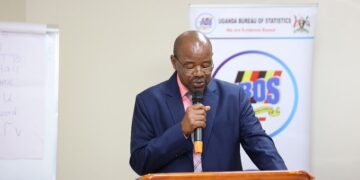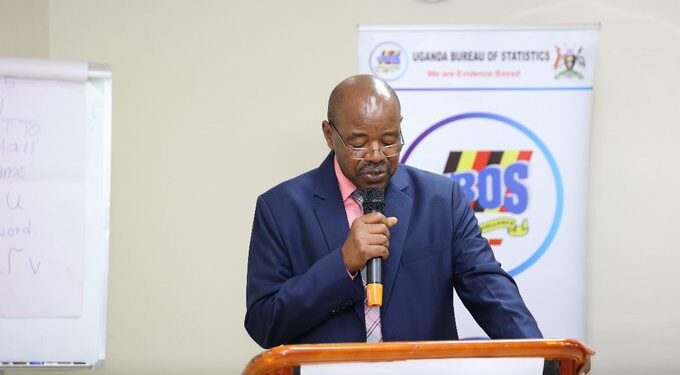The Government of Uganda, through the Uganda Bureau of Statistics (UBOS), has officially launched the Uganda National Household Survey (UNHS) 2023/2024 Report at a high-level event held at Hotel Africana in Kampala.
The event was presided over by Hon. Amos Lugoloobi, Minister of State for Finance, Planning, and Economic Development (Planning), alongside Dr. Chris N. Mukiza, Executive Director of UBOS, and Dr. Albert Byamugisha, UBOS Board Chairman.
The UNHS 2023/24 is the eighth in the series of national surveys since 1999 and provides a comprehensive overview of Uganda’s socio-economic landscape. It was conducted over 12 months between March 2023 and February 2024, covering 17,350 households across 1,735 enumeration areas, including refugee and host communities in Kampala, Northern and Western Uganda.
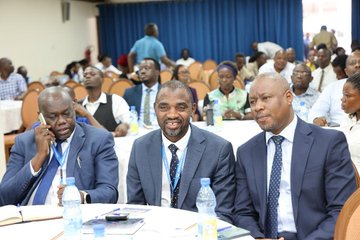
“This report is not just a document—it is a diagnostic tool. It tells us where we are, where we must go, and how to get there,” said Hon. Lugoloobi. “Evidence-based planning is no longer optional; it is the backbone of governance. The rollout of the Fourth National Development Plan (NDP IV) is firmly anchored in insights from this report.”
He noted that the findings show a national poverty reduction from 20.3% in 2019/20 to 16.1% in 2023/24, calling it “a major shift affecting millions.”
“Between 2019/20 and 2023/24, Uganda’s national poverty rate declined from 20.3% to 16.1%. This is not a small change, it is a major shift affecting millions. It reflects growing trust in commercial farming, education, and inclusive models like the Parish Development Model.”
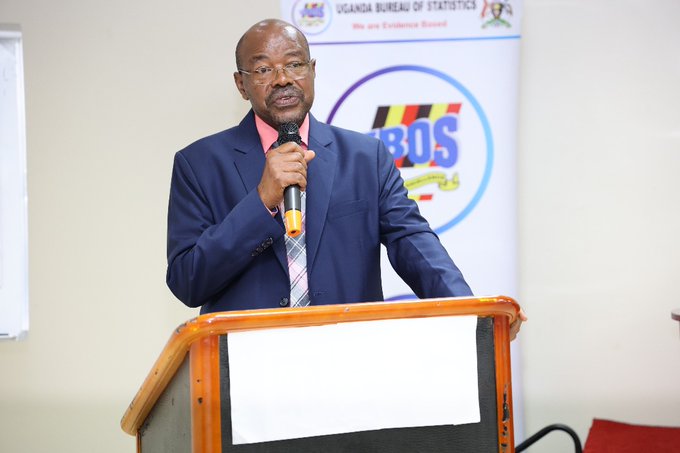
However, he emphasised the need for continued action, particularly in underperforming regions.
“Karamoja’s poverty rate remains at a shocking 74.2%, while Bukedi and Teso also lag behind. We need smart policies and strong leadership to bridge this gap. Development is not about data alone—it’s about transforming lives: a mother accessing healthcare, a youth getting a job, a child finishing school,” Lugoloobi added.
Dr. Chris Mukiza underscored the importance of national surveys in shaping policy: “The Uganda National Household Survey provides vital data on key economic characteristics of the population, including employment, income and expenditure, education, health status, housing conditions, household assets, and access to loans. This is the data that drives our planning.”
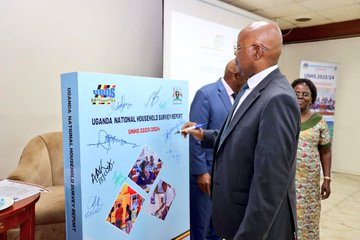
He further explained that the delay in report dissemination was due to the National Population and Housing Census 2024, which required extensive manpower.
Dr. Albert Byamugisha reiterated UBOS’s statutory mandate under the Uganda Bureau of Statistics Act to collect and disseminate official statistics, adding: “Statistics are a public good, and our role is to ensure they are relevant, timely, and accessible. This report supports SDG targets and national frameworks like Vision 2040 and Agenda 2063.”
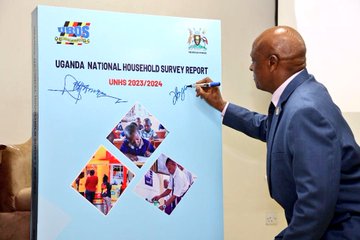
Presenting key findings, Ms. Sharon Apio, Head of Demography and Social Statistics at UBOS, stated that the UNHS continues to be a flagship survey for monitoring Uganda’s progress. She highlighted a 92% response rate due to rigorous sampling and digital data collection methods (CAPI).
Among the sobering findings was that 7 million Ugandans remain below the absolute poverty line.
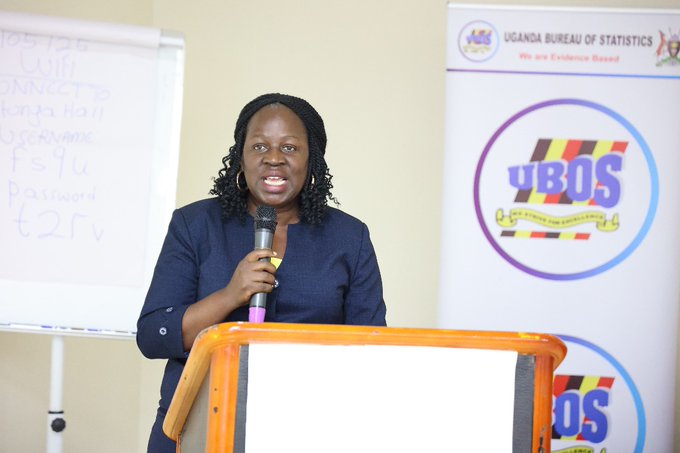
Mr Stephen Baryahirwa, lead statistician, pointed out: “Food expenditures were found to be higher in rural than in urban areas, and Karamoja alone accounts for 13.4% of national poverty. This calls for regional targeting in poverty eradication efforts.”
The survey’s data is expected to inform academic research, civil society programming, development partner strategies, and public debate, reinforcing UBOS’s commitment to transparency and evidence-based development.
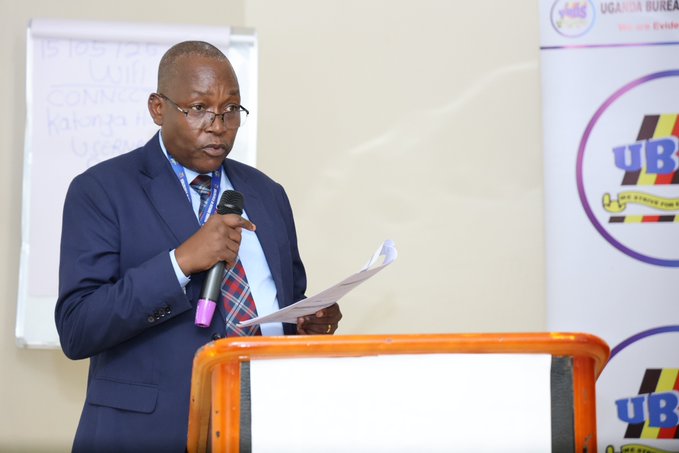
In closing, Hon. Lugoloobi made a rallying call: “Let’s not waste the momentum. We have made progress, but we must leave no Ugandan behind. Let this data guide our actions and energise our commitment to equitable, inclusive growth.”
